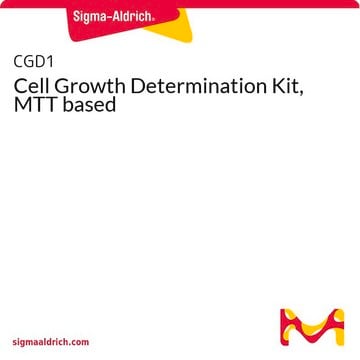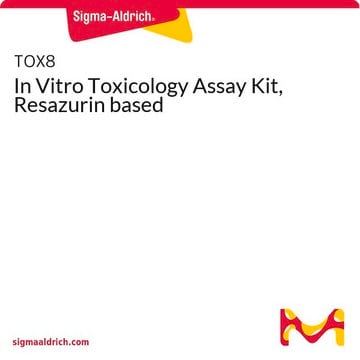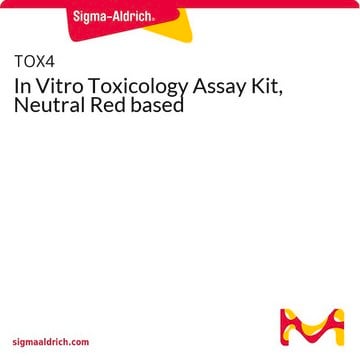TOX1
In Vitro Toxicology Assay Kit, MTT based
Synonym(s):
mitochondrial activity assay
About This Item
Recommended Products
usage
kit sufficient for 1,000 tests
packaging
pkg of 1 kit
storage condition
dry at room temperature
λmax
570 nm
application(s)
cell analysis
detection
detection method
colorimetric
storage temp.
2-8°C
General description
Application
Biochem/physiol Actions
related product
Signal Word
Danger
Hazard Statements
Precautionary Statements
Hazard Classifications
Aquatic Acute 1 - Aquatic Chronic 2 - Eye Dam. 1 - Flam. Liq. 2 - Muta. 2 - Skin Corr. 1 - STOT SE 3
Target Organs
Central nervous system, Respiratory system
Storage Class Code
3 - Flammable liquids
Flash Point(F)
53.6 °F
Flash Point(C)
12 °C
Certificates of Analysis (COA)
Search for Certificates of Analysis (COA) by entering the products Lot/Batch Number. Lot and Batch Numbers can be found on a product’s label following the words ‘Lot’ or ‘Batch’.
Already Own This Product?
Find documentation for the products that you have recently purchased in the Document Library.
Customers Also Viewed
Articles
Quality control guidelines to maintain high quality authenticated and contamination-free cell cultures. Free ECACC handbook download.
Cell based assays for cell proliferation (BrdU, MTT, WST1), cell viability and cytotoxicity experiments for applications in cancer, neuroscience and stem cell research.
Our team of scientists has experience in all areas of research including Life Science, Material Science, Chemical Synthesis, Chromatography, Analytical and many others.
Contact Technical Service












